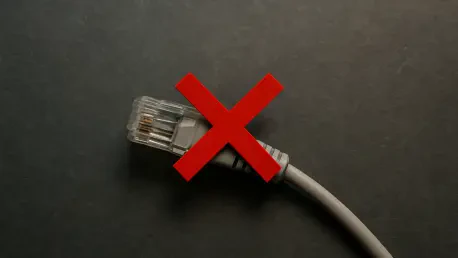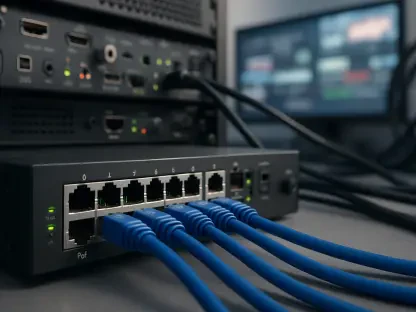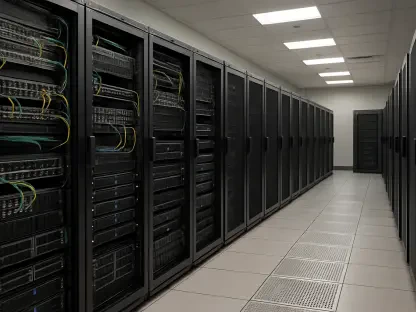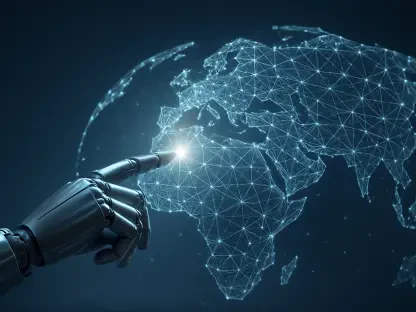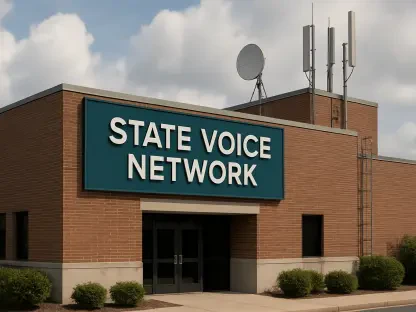Imagine a world where a single accusation of online piracy could sever an entire household’s access to the internet, cutting off connections to education, work, and essential services in an instant. This alarming possibility is at the heart of a pivotal legal battle currently before the U.S. Supreme Court in the case of Cox v. Sony. The court’s impending review of a Fourth Circuit ruling, which upheld a staggering $1 billion damages award against Cox Communications for secondary copyright infringement, has ignited fierce debate across multiple sectors. Broadband providers, consumer advocates, and tech giants alike warn that affirming this decision could reshape the digital landscape, potentially isolating countless families and institutions from the online world. The crux of the concern lies in the ruling’s mandate for internet service providers (ISPs) to terminate service based on mere accusations, a policy that risks punishing the innocent alongside the guilty. This case is not just about copyright law; it’s about the very foundation of internet access as a public necessity.
Legal Precedent Under Fire
The Fourth Circuit’s decision in Cox v. Sony has sent shockwaves through the legal and tech communities due to its unprecedented interpretation of contributory copyright infringement. Stemming from a 2019 Virginia jury verdict, the ruling found Cox liable for failing to disconnect subscribers accused of piracy after receiving multiple infringement notices from record labels. Critics argue that this sets a dangerous standard, as it relies on IP-address-based notices that often fail to pinpoint individual culprits. Entire schools, hospitals, or shared networks could lose connectivity over the actions of a single user, a scenario described as both chaotic and unworkable by legal experts and industry stakeholders. The expansive application of statutory damages under a diluted willfulness standard further compounds the issue, placing ISPs in an untenable position where they must act as enforcers without clear evidence of wrongdoing. This interpretation diverges sharply from prior legal norms, raising questions about fairness and proportionality in copyright enforcement.
Beyond the legal intricacies, the financial implications of this ruling are staggering for broadband providers and, by extension, their customers. Major ISPs like AT&T, Charter Communications, and Verizon have highlighted the ripple effects of similar lawsuits, with potential damages in the billions looming over the industry. For instance, Verizon faces a possible $2.6 billion liability in a separate copyright dispute, while others grapple with claims that could cripple their operations. Such financial burdens threaten to deter investment in broadband infrastructure, particularly in underserved rural areas where connectivity is already limited. If ISPs are forced to prioritize legal defense over network expansion, the digital divide could widen, leaving vulnerable communities even further behind. The fear is that affirming this precedent at the Supreme Court level will create a chilling effect, where the cost of compliance or litigation stifles innovation and restricts access to an essential service.
Broad Stakeholder Opposition
A remarkable coalition of stakeholders has united against the Fourth Circuit ruling, reflecting the breadth of its potential impact on society. Organizations ranging from the Electronic Frontier Foundation and the American Library Association to tech giants like Google and Microsoft have filed amicus briefs in support of Cox Communications. Consumer advocacy groups such as Public Knowledge argue that equating an ISP’s provision of internet service to active facilitation of infringement is a flawed analogy, akin to blaming a power company for how electricity is used. This diverse opposition underscores a shared concern that the ruling threatens not only individual households but also startups, digital services, and critical connections to jobs, healthcare, and education. Rural communities, already struggling with limited internet options, stand to lose the most if service terminations become commonplace based on unverified claims of piracy.
Adding to the chorus of dissent, broadband providers and trade groups like USTelecom warn that the decision imperils public access to the internet on a massive scale. The mandated termination of service based solely on IP-address notices fails to account for the complexity of modern networks, where multiple users often share a single connection. This blunt approach risks collateral damage, disconnecting thousands of innocent individuals or institutions over the actions of a few. The broader digital economy also hangs in the balance, as startups and social media platforms fear that heightened ISP liability could stifle innovation and limit online engagement. The consensus among these varied voices is clear: the current ruling prioritizes aggressive copyright penalties over equitable access, creating a framework that could unravel the internet’s role as a public utility. This widespread pushback illustrates the stakes involved as the Supreme Court prepares to weigh in on this critical issue.
Balancing Copyright and Connectivity
The tension between copyright enforcement and internet governance lies at the core of this legal battle, presenting a complex challenge for policymakers and justices alike. On one hand, protecting intellectual property remains a vital concern for creators and industries reliant on copyright law to safeguard their work. On the other hand, the practical realities of internet access demand a nuanced approach that avoids punishing entire communities for isolated infractions. Stakeholders across the spectrum call for a balanced framework that upholds legal rights without sacrificing universal connectivity. The fear is that an overly punitive stance, as embodied in the Fourth Circuit’s ruling, could set a precedent where ISPs err on the side of termination to avoid crippling lawsuits, effectively sidelining countless users. Finding a middle ground that addresses both infringement and access is paramount as the Supreme Court deliberates this landmark case.
Looking ahead, the resolution of Cox v. Sony will likely shape the future of online connectivity for years to come. As oral arguments approach in the coming months, with a decision expected by mid-2026, the focus must shift toward actionable solutions that prevent widespread service disruptions. Policymakers could explore clearer guidelines for ISPs on handling infringement notices, ensuring that terminations are based on verified evidence rather than broad assumptions. Additionally, fostering dialogue between copyright holders and internet providers might yield collaborative mechanisms to target actual offenders without collateral harm. The legal community and tech industry must also advocate for reforms that prioritize equitable access, especially for marginalized groups reliant on the internet for essential services. The outcome of this case underscores a critical moment in history, where the balance between protecting rights and preserving connectivity is fiercely contested, setting the stage for a redefined digital landscape.
